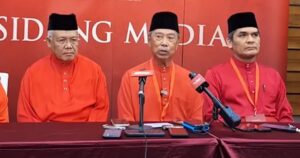
An NGO has slammed Maran PAS Youth information chief Salman Al Farisi’s analogy comparing women leaders to animals, saying that Islam uplifts and honours women’s leadership.
Pertubuhan Generasi Aspirasi Pemimpin Wanita Malaysia (GAP.MY) said such statements are a blatant manifestation of patriarchal thinking that has no place in a civilised and inclusive society.
It pointed out that women have long held leadership roles in Islam, citing the example of Khadijah Khuwaylid, a highly successful businesswoman and strong supporter of her husband, the Prophet Muhammad.
The NGO also gave the example of Aisyah Abu Bakar, a renowned scholar and narrator of hadith.
“(These) are clear evidence that women played vital leadership roles in Islamic civilisation,” it said in a statement.
The NGO also said that verse 34 of Surah An-Nisa is often misinterpreted by those who seek to preserve male dominance and restrict women’s space in society.
“The verse outlines responsibilities within the family unit – it is not a licence to limit women’s rights in public life,” GAP.MY added.
Law and institutional reform minister Azalina Othman Said yesterday warned that PAS leaders may have broken several laws by comparing women leaders to animals and citing the Quran in defending the analogy.
She said the PAS leaders may have breached several provisions, namely Sections 507B, 509, 504 and 298A of the Penal Code.
Azalina did not name the leaders, but uploaded two articles which identified Salman and party deputy president Tuan Ibrahim Tuan Man.
On Monday, Malaysiakini reported Salman as comparing men to bulls, and women to cows when emphasising the importance of men in leadership roles, based on his experience in livestock farming.
Salman had claimed that a cow would usually lead the herd, while bulls serve to protect the herd.
He said society should, therefore, avoid elevating women to leadership positions, and that men should assume leadership roles in accordance with Quranic teachings.
Tuan Ibrahim had defended Salman, saying such analogies were used in literary works and not meant to degrade women.






